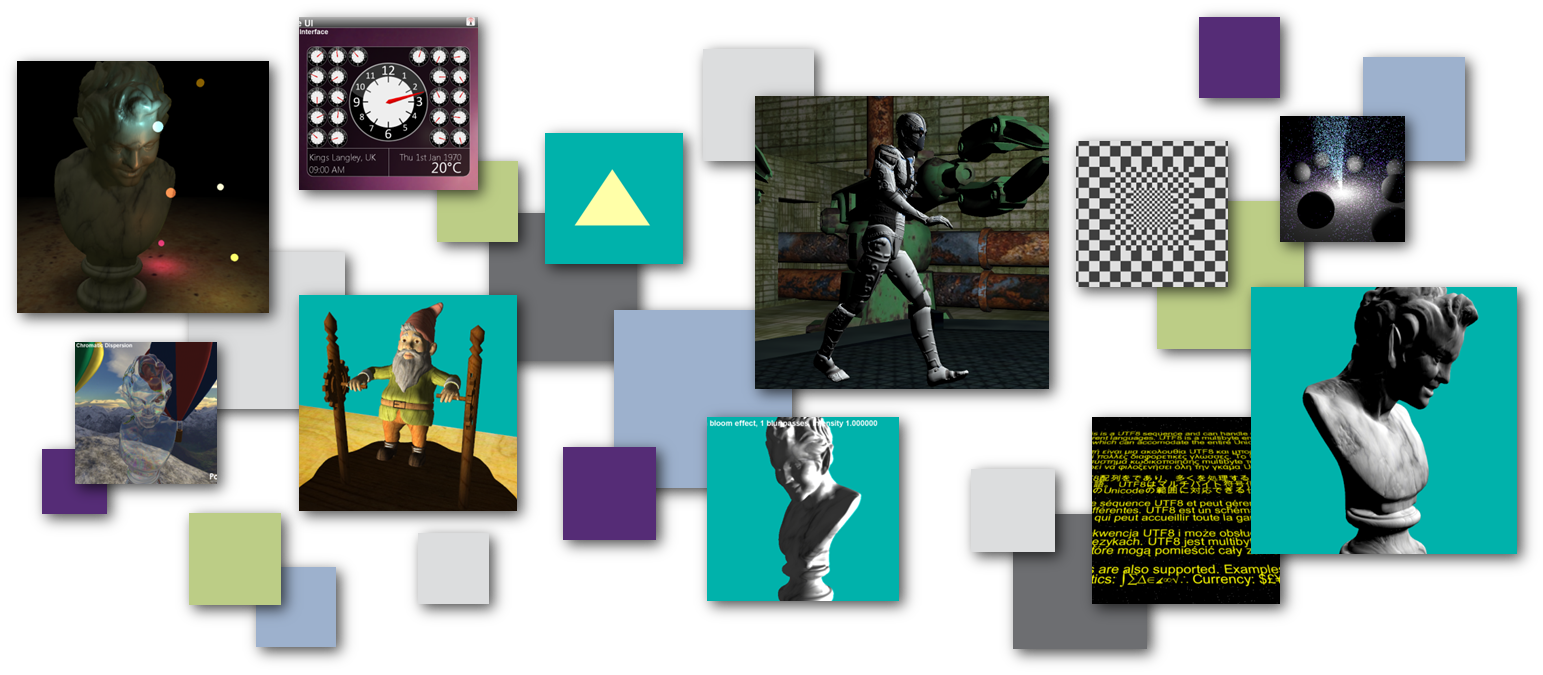
The SDK supports iOS, Android and Linux PowerVR devices. It also supports Windows, OS X and Linux PC emulation. Imagination's OpenGL ES emulation library, PVRVFrame, can be downloaded from our website here.
To keep up to date with changes to the SDK read the what's new page.
- The framework consists of separate libraries providing groups of functionality as modules. These modules are PVRCore, PVRAssets, PVRShell, PVRPlatformGlue, PVRApi, PVRUIRenderer and PVRCamera
- PVRCore provides support for the other modules
- PVRShell provides platform abstraction/entry point (replaces the old PVRShell)
- PVRPlatformGlue provides platform/API joining functionality to PVRShell
- PVRApi provides an API abstraction on top of which to build the example (replacing PVRTools)
- PVRUIRenderer provides 2D element drawing/layout functions (replaces the old tools Print3D)
- PVRCamera provides HW Camera abstractions (replaces the CameraModule)
- Uses C++ (namespacing, smart pointers, OOP), the C++ standard library, GLM for maths
The examples provided in the SDK are fully commented, highly optimized C++ applications that cover a variety of rendering techniques. They are designed in a step-by-step tutorial style to gradually guide the most inexperienced graphics developers from a simple render of a single triangle to complex scenes that incorporate many objects, animations and shader effects.
The Getting Started guide of our SDK Browser provides step-by-step instructions to build and deploy the SDK example applications for the various support operating systems. You can find the SDK Browser here.
Our documentation (architecture guides, performance recommendations & white papers) can be found on the Imagination website here. They are also included in the SDK's Documentation/ directory.
The latest PowerVR Graphics Tools and SDK release notes can be found on the Imagination website here.
If you have any questions about the SDK, PowerVR device optimization/debugging or our tools, please contact us through our public forum. We also recommend checking out our FAQ to see if your question has already been answered. If you would prefer to contact us confidentially, you can file a support ticket here.
The SDK is distributed under the MIT license.